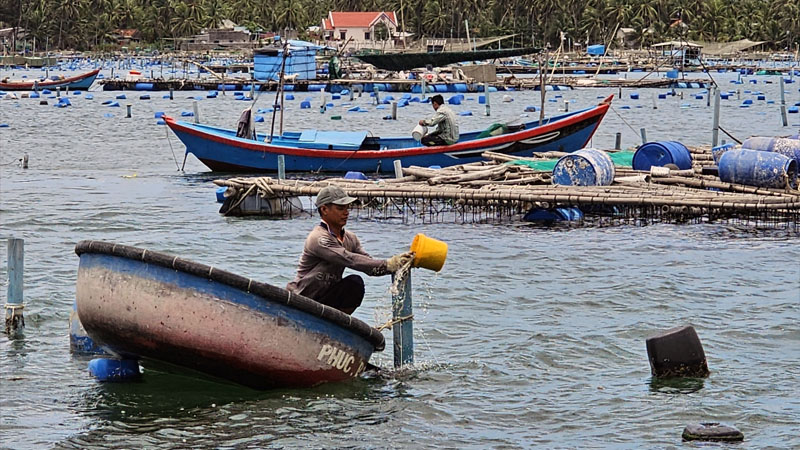Exclusive content

Shrimp and seafood farmers in Phu Yen’s Cu Mong lagoon area are reeling from a crisis marked by mass deaths of lobsters, marine fish, and shrimp. In just one week, over 67 tons of lobsters and 62 tons of fish succumbed, impacting 281 households in Song Cau town. The financial losses are estimated to reach tens of billions of dong, placing local families in a precarious situation.
Economic Importance of Lobster Farming
Lobster farming has historically been a significant economic driver in Song Cau, employing around 4,000 households and generating substantial revenue. However, the recent losses pose a severe threat to this already critical industry, with outstanding debts from lobster farming comprising 70% of local bank totals.
The Department of Agriculture and Rural Development has identified multiple factors behind the mass deaths. High cage densities, poor farming conditions, and adverse weather have led to depleted dissolved oxygen levels in the water and increased toxic gas concentrations. These conditions have significantly affected the health of aquatic life.
Immediate Actions Taken
Local authorities are urging farmers to adopt sustainable practices, including reducing cage densities and increasing spacing between cages. These measures aim to mitigate risks associated with oxygen depletion and improve overall water quality.
In response to the crisis, the State Bank of Vietnam’s Phu Yen branch has enacted measures to support affected farmers. This includes reduced interest rates, debt restructuring, and additional loans to aid recovery efforts. Currently, eight local banks are offering financial support to lobster farmers.
Success Stories Amidst Challenges
Despite the crisis, some farmers are receiving financial assistance that enables them to continue operations. For instance, Ms. Tran Thi Chac secured a VDN 200 million (USD 8 thousand) loan to reinvest in her shrimp farming, while Mr. Le Van Sang received VDN 150 million (USD 6 thousand) to restore his business.
The State Bank of Vietnam’s Phu Yen branch is committed to monitoring the situation closely and ensuring that shrimp farmers continue to receive necessary support. This ongoing assistance will be crucial for the recovery and sustainability of the local shrimp farming sector following the recent crisis.